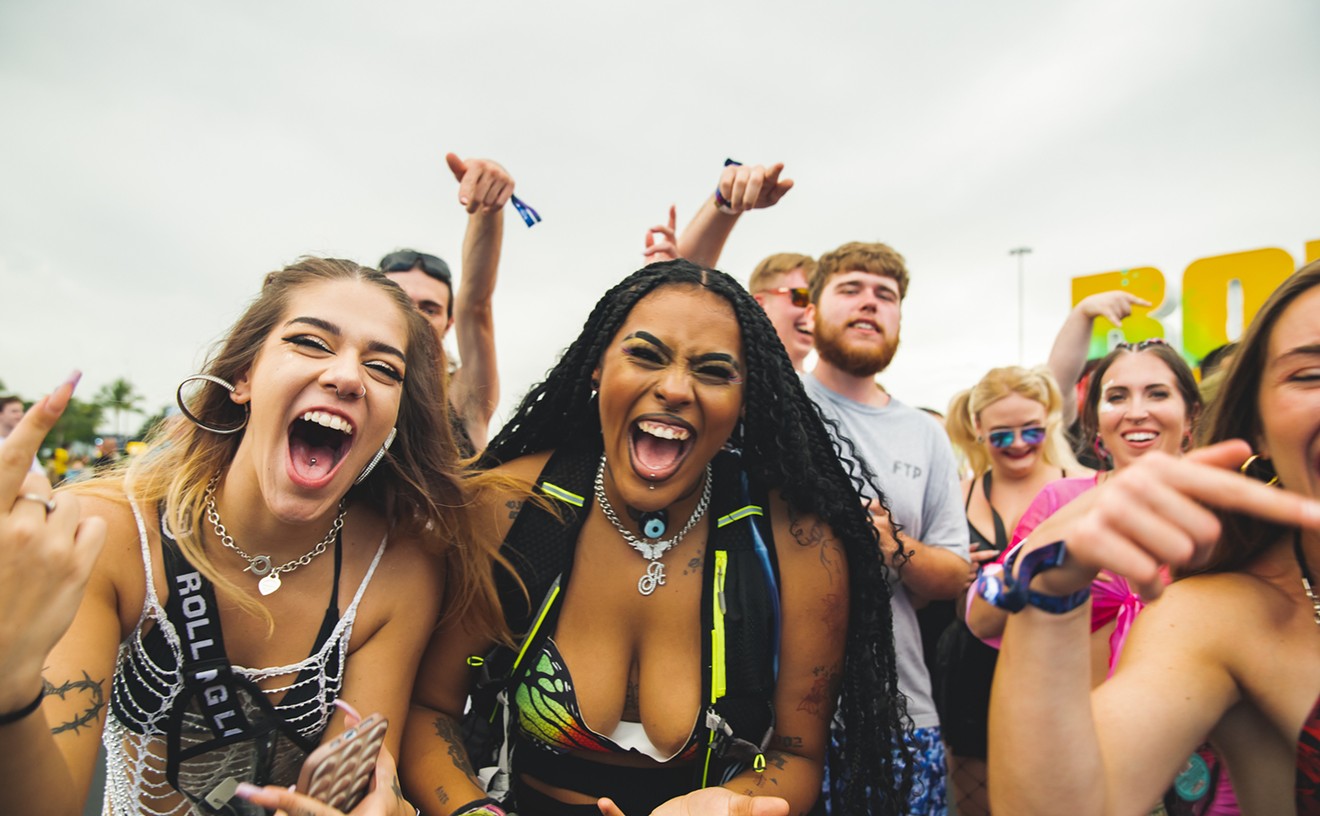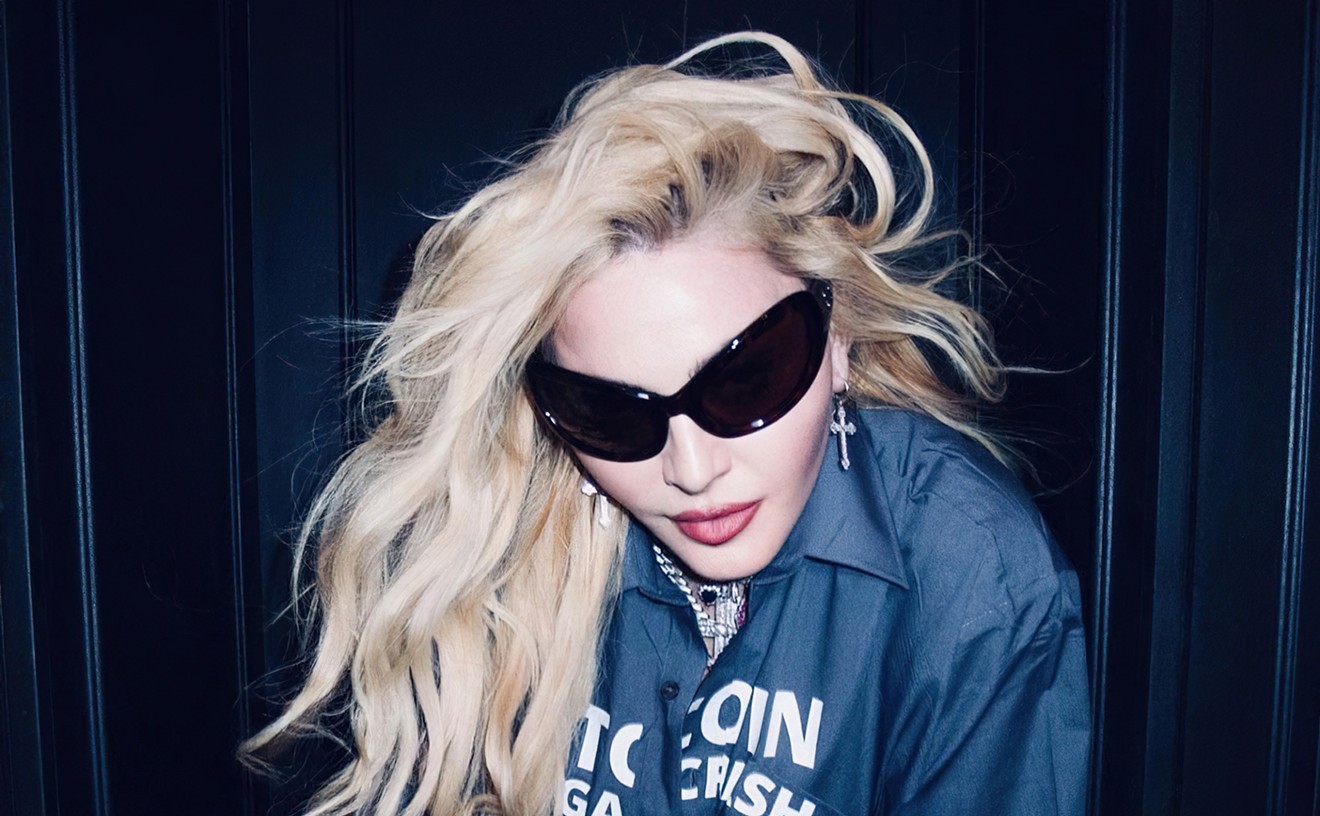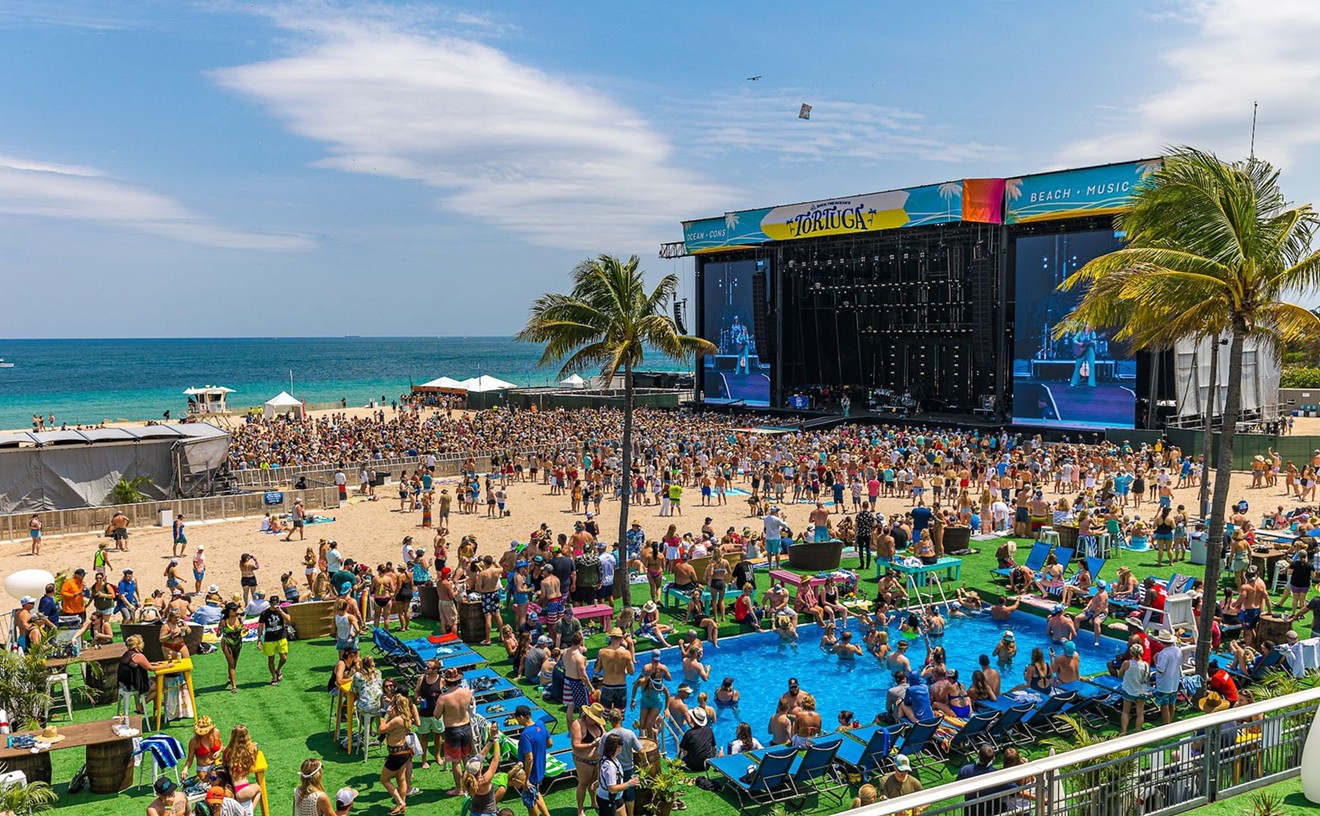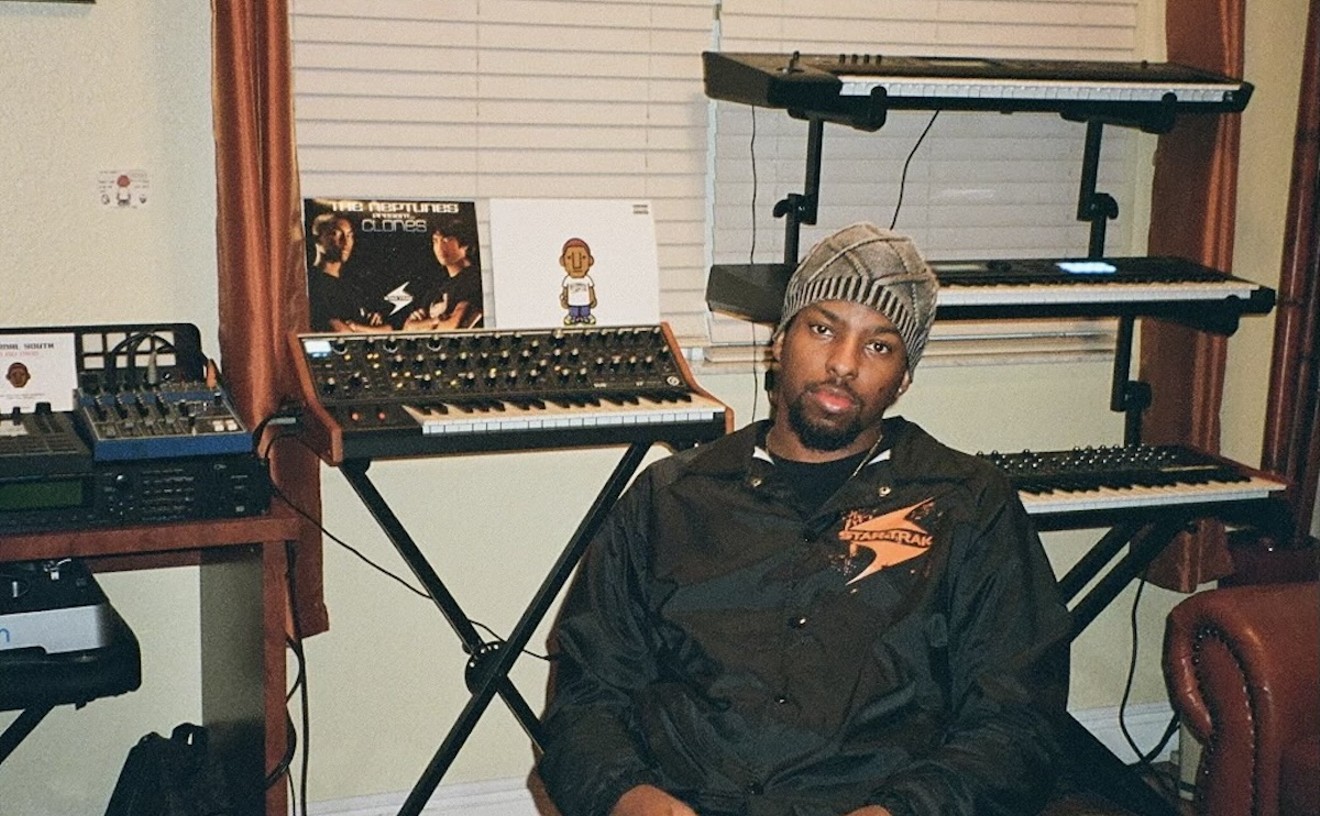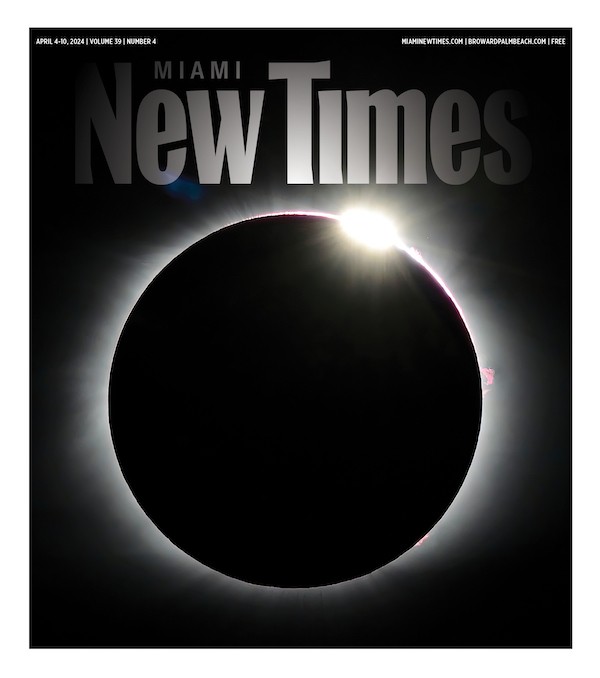Anger, it seems, is the healthiest choice for Henry Rollins.
While another person might have used incidents like these to become "a weakened victim of our widespread American city-sickness" (Rollins's description of the murderer in the obituary he wrote for Cole), he chose a different outlet. Though he calls himself "insane," Rollins has channeled his anger and nearly ceaseless energy into a stream of successful projects.
First there is the Rollins Band, which has recently released The End of Silence (the title refers to the broader exposure the band will get on a major label, Imago). After the breakup of punk legends Black Flag, Rollins formed his band with a friend of fourteen-odd years, guitarist Chris Haskett, and "the best rhythm section I had ever seen," drummer Sim Cain and bassist Andrew Weiss. The Rollins Band counts its soundman, Theo Van Rock, as a full member.
The End of Silence is impressive not just for its raw, bare-bones rock, but for the interwoven elements of jazz (yes, jazz). In complementary contrast to this hybrid are Rollins's typically pissed-off vocals. "Rollins has said we essentially play the blues, and I would agree with that," says Haskett. "For the people who can't relate to it, I think there's a strong voyeuristic quality. They come to watch the beast unleashed." No wonder so many bands on last year's Lollapalooza tour were worried about following the Rollins Band, though they were the very first act on the bill. Their music possesses all the subtlety of uranium, and on-stage Rollins seems a likely candidate for spontaneous combustion.
Another Rollins project is 2.13.61, the publishing company named for his birthdate. Rollins originally started 2.13 because he had a stack of essays, tour diaries, and poetry, but nowhere to take them. "I try to take as little shit as possible from the powers that be," he writes in his biography sheet. "I know that we all have to eat some in life's rich pageant. I figured that I could minimize the intake if I could control the release of my work...and it wasn't as if any publisher was beating my door down looking to do it."
"This company started in my bedroom," Rollins says, not pridefully, merely stating a fact. "Now it's a full-on production." 2.13.61 has published a dozen books by Rollins and other nonmainstream offerings from Nick Cave, former Gun Club leader Jeffrey Lee Pierce, as well as nonmusicians Don Bajema (short stories) and Bill Shields (the author's experiences in Vietnam). Though the company was called "an ego trip," 2.13.61 has sold more than 40,000 copies of its titles, and Rollins now has to put some of them into reprint.
Like musicians, authors go on tour, too. Back in 1983, Rollins was asked if he would like one night out of a string of readings by writers and poets in Los Angeles. "I had never done anything like this," Rollins wrote, "so I asked to be put on all of them." Since this intrepid outing, when he has time between publishing, writing books and lyrics, recording, and touring with his band, Rollins performs spoken-word engagements across the nation. He reads some of his poetry and goes off on whatever is on his mind, most recently the Los Angeles riots and the death of his friend Joe Cole.
In between these projects, Rollins will do something for fun, like appearing in a Gap ad or impersonating Vanilla Ice in 3rd Bass's "Pop Goes the Weasel" video. There is also talk of films in the future, either his own or starring in someone else's. Oh yes, and Rollins works out. A lot. And he drinks a ton of coffee. The only things Henry Rollins doesn't do are smoke, drink, take drugs, and waste time.
"People always ask me where I get my energy from, how I keep doing all this stuff, what I do to relax, and if I ever take time off," sighs Rollins, sounding weary at the 2.13 office. At the risk of being redundant, these are good questions. How is it that Henry Rollins can do all these things, when other people have trouble getting out of bed in the morning? "Oh, I don't know," he demurs, not a fan of self-congratulatory statements. "I just like what I do."
Was there a specific point in time when Rollins began "maxing out," as he puts it? "Yeah," he answers immediately, "when Black Flag broke up." Up until the Black Flag era, Rollins was a kid from Washington, D.C., who went to a military high school, hated his dad, and worked at a Haagen-Dazs ice cream store. He went to see the seminal punk band Bad Brains play in someone's living room; he ended up on his back with the singer, HR, screaming in his face ("It was one of the biggest moments in my life").
At a Black Flag concert, Rollins jumped on-stage, grabbed the microphone, and started singing. A few days later, the band called and asked him to audition because their singer wanted to play rhythm guitar. The twenty-year-old Rollins joined Black Flag, touring and recording with them for the next five years.
It was over much faster than it started, in a two-minute phone call from Black Flag leader Gregg Ginn telling Rollins that he was breaking up the band. "I was on my own, really on my own," Rollins says now, and while he could easily have entered the has-been hall of fame, he instead acquired a manager and got motivated.
Considering his experiences, personality, and position, Rollins gets a chance to be outspoken on many issues, including those pertaining to women -- generally not a hot topic among male musicians unless they're talking about groupies. Rollins has said in the past that he would arm women with guns to deter rapists. Yet, in a dichotomy not meant for dissection in this forum, he seems oddly detached from any understanding of women. "I don't, quite honestly, run into many women," he says candidly. "Rarely do they talk to me. I don't know much about them. I don't really go out of my way to pursue them. [Though Rollins has affirmed his heterosexuality, he has also said he is avoiding girlfriends and relationships in general after Cole's death.] I think perhaps some of them get the wrong idea about what they see when we play. I talk to girls every once in a while. Most say, `I've always wanted to talk to you, but I was scared you were going to hit me or something.' And I'm like, God, that's the last thing I'd ever do."
The Rollins Intimidation Factor has been cited by both men and women in almost every interview with the man, and is usually attributed to his direct, defense-stripping gaze, his many tattoos, his past, his present, his inability to make chit-chat. "I'm only five-ten," Rollins shrugs. "I asked our guitar player, `Why do I bum people out?' He said, `It's because someone will ask how you're doing and you reply, "What do you want?"'"
If by now you're wondering, the answer is yes, Rollins does take a moment to smile occasionally. Says guitarist Haskett, "People ask me if Henry's really serious. Like the average person, he eats, drinks, reads...he enjoys his life as best he can. We all take our work very seriously, but we're pretty goofy. We don't go around drowning puppies or anything."
"I just don't have time for small talk," says Rollins. "Being direct -- that's what I like about good music, good film, good everything. Life's too short, you know? Some people are good at being subtle. I've never tried."
THE ROLLINS BAND with Corrosion of Conformity performs at 9:00 p.m. Tuesday at the Cameo Theatre, 1445 Washington Ave, Miami Beach, 532-0922. Tickets cost $12 and $14.
To contact 2.13.61, write to P.O. Box 1910, Los Angeles,





